
Current Fungal Infection Reports
metrics 2024
Connecting researchers to combat fungal infections.
Introduction
Current Fungal Infection Reports is an essential academic journal dedicated to the rapidly evolving field of mycology, specifically focusing on the diagnosis, treatment, and epidemiology of fungal infections. Published by Springer, this journal aims to provide a comprehensive platform for researchers, healthcare professionals, and scholars to disseminate groundbreaking findings and insights into the complexities surrounding fungal diseases. With an ISSN of 1936-3761 and an E-ISSN of 1936-377X, the journal is recognized in the Q3 category for Infectious Diseases as of 2023 and holds a Scopus rank of #199 out of 344 in its field, showcasing its growing influence. Although not currently open access, Current Fungal Infection Reports remains an important resource for those wishing to stay updated on key developments and trends within this critical area of global health. Through its commitment to advancing knowledge and fostering academic exchange, the journal plays a crucial role in combating the challenges posed by fungal infections, making it a must-read for anyone involved in infectious disease research and treatment.
Metrics 2024
 0.32
0.32 2.30
2.30 1.80
1.80 31
31Metrics History
Rank 2024
Scopus
IF (Web Of Science)
JCI (Web Of Science)
Quartile History
Similar Journals
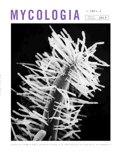
MYCOLOGIA
Innovative insights into fungal biology and ecology.MYCOLOGIA, published by Taylor & Francis Inc, is a prestigious journal that has been at the forefront of fungal research since its inception, with converging years of publication from 1945 to 2024. This interdisciplinary journal, identified by ISSN 0027-5514 and E-ISSN 1557-2536, stands out in various scientific categories, achieving Q1 rankings in Ecology, Evolution, Behavior and Systematics, as well as Plant Science, alongside strong performances in Cell Biology and Molecular Biology categories. With an impact factor that reflects its significance in the field, MYCOLOGIA appeals to a diverse audience, including researchers, professionals, and students dedicated to advancing the understanding of fungal biology and its ecological implications. Notably, while it does not currently operate under an Open Access model, the journal remains a vital resource for those pursuing groundbreaking discoveries in mycology and related disciplines.

FUNGAL DIVERSITY
Transforming Ecological Perspectives with Fungal StudiesFungal Diversity is a premier academic journal dedicated to advancing the science of mycology, encompassing ecological, evolutionary, and biological research involving fungi. Published by Springer, this journal has established a significant presence in the academic community since its inception in 1998, and it continues to thrive with a convergence period extending to 2024. Holding a prestigious Q1 ranking in several categories — including Ecology, Ecology, Evolution, Behavior and Systematics, and Plant Science — Fungal Diversity showcases cutting-edge research that influences ecological management, conservation, and biodiversity studies. With its notable positions in Scopus rankings, including being ranked #1 in Environmental Science - Ecology, the journal serves as an essential resource for researchers, professionals, and students interested in the complex interplay between fungi and their environments. Although it does not currently offer open access, interested readers can benefit from the journal's rich repository of peer-reviewed articles, making Fungal Diversity a vital component of the scientific literature landscape.

SYDOWIA
Navigating the Frontiers of Ecological and Botanical ResearchSYDOWIA is a prestigious academic journal based in Austria, published by Verlag Ferdinand Berger Sohne Gesellschaft mbH, that has been a cornerstone of scientific publishing since its establishment in 1996. With an ISSN of 0082-0598, SYDOWIA focuses on critical research in the fields of Ecology, Evolution, Behavior and Systematics as well as Plant Science, earning a notable classification in Category Quartiles with Q3 in Ecology-related disciplines and Q2 in Plant Science for 2023. The journal’s strategic insights into agricultural and biological sciences have secured a place within the Scopus rankings, where it holds the position of #191 out of 516 in Plant Science and #278 out of 721 in Ecology categories—reflecting its growing influence with a percentile standing of 63rd and 61st, respectively. Although SYDOWIA is not an Open Access journal, it continues to thrive in delivering scholarly articles that promote advancement and innovation in ecological and botanical research. Researchers, professionals, and students alike can rely on SYDOWIA as a vital resource for disseminating knowledge and fostering exploration in these essential scientific domains.
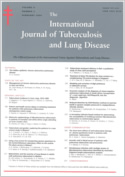
INTERNATIONAL JOURNAL OF TUBERCULOSIS AND LUNG DISEASE
Navigating the Future of Respiratory HealthInternational Journal of Tuberculosis and Lung Disease is a leading peer-reviewed journal published by the International Union Against Tuberculosis and Lung Disease (IUATLD). Since its inception in 1997, this journal has dedicated itself to disseminating groundbreaking research and advancements in the prevention, diagnosis, and treatment of tuberculosis and related respiratory conditions. With an impressive impact factor and respected quartile rankings—Q1 in Miscellaneous Medicine and Q2 in both Infectious Diseases and Pulmonary and Respiratory Medicine—this journal serves as a vital resource for researchers, healthcare professionals, and students alike. Its publication spans diverse fields, ensuring comprehensive coverage of the latest findings and trends in respiratory health. Although it does not offer Open Access, the journal's commitment to high academic standards and innovative research makes it essential reading for anyone involved in the fight against lung disease. The journal is based in Paris, France, and continues to provide invaluable insights that drive global health initiatives and clinical practices in tuberculosis management.

MYCOPATHOLOGIA
Illuminating the complexities of fungal interactions.MYCOPATHOLOGIA, published by Springer in the Netherlands, stands as a pivotal journal in the fields of mycology, plant science, and veterinary microbiology. With its extensive history dating back to 1938, this journal has consistently contributed to the understanding of fungal pathogens and their impact on both agriculture and animal health. It currently holds impressive rankings in Scopus, including Q1 status in Agronomy and Crop Science, and Q2 rankings in Applied Microbiology and Biotechnology, demonstrating its influence and rigor in the scientific community. Researchers and professionals benefit from its curated, high-quality studies which address critical areas such as plant-pathogen interactions and veterinary mycology. While not open access, MYCOPATHOLOGIA emphasizes comprehensive research output and serves as a vital resource for advancing knowledge and fostering innovation in its disciplines. The journal remains committed to disseminating valuable insights that drive forward both academic inquiry and practical applications in related fields, ensuring its relevance and importance in contemporary research.
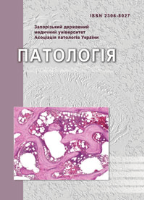
Pathologia
Bridging Theory and Practice in PathologyPathologia is a prominent open-access journal dedicated to advancing the field of clinical and experimental pathology, published by ZAPORIZHZHYA STATE MEDICAL UNIVERSITY. Established in 2013, the journal aims to provide a platform for researchers, clinicians, and students to share innovative research, case studies, and reviews that are critical to understanding disease mechanisms and improving diagnostic and therapeutic strategies. With a steady commitment to high-quality research dissemination and accessibility, this journal serves as an essential resource for those in the medical and health sciences fields. Researchers engaging with Pathologia can explore a diverse range of topics, including histopathology, molecular pathology, and laboratory medicine, promoting both scholarly discussion and practical applications. The journal's open-access model ensures that vital research findings are freely available to the global academic community, fostering a collaborative environment that is crucial for the advancement of pathology as a discipline.
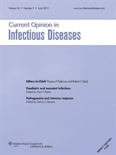
CURRENT OPINION IN INFECTIOUS DISEASES
Illuminating the Path Forward in Infectious Disease UnderstandingCURRENT OPINION IN INFECTIOUS DISEASES, published by Lippincott Williams & Wilkins, is a premier journal that focuses on the latest developments and understanding in the field of infectious diseases. With its ISSN 0951-7375 and E-ISSN 1473-6527, this journal has gained recognition for its pivotal role in advancing knowledge from 1988 to its current publications in 2024. Boasting an impressive Q1 ranking in both Infectious Diseases and the Medical Microbiology category, it holds a reputable position among the top journals in the field. The journal serves as an essential resource for researchers, professionals, and students alike, providing them with timely reviews, analyses, and perspectives that shape contemporary practice and policy. While lacking open access options, it ensures a critical examination of emerging trends and unique insights that foster informed discussions. With its consistently high impact factor, CURRENT OPINION IN INFECTIOUS DISEASES remains a vital platform for thought leaders and innovators navigating the complexities of infectious disease research.
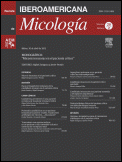
REVISTA IBEROAMERICANA DE MICOLOGIA
Advancing Mycological Research Across Ibero-AmericaREVISTA IBEROAMERICANA DE MICOLOGIA, published by the ASOCIACION ESPANOLA MICOLOGIA-AEM, is a vital resource for those engaged in the study of mycology and infectious diseases. With a history spanning from 1996 to 2024, this journal is committed to advancing knowledge in the field through the dissemination of high-quality research articles, reviews, and case studies. Although it currently features a Q3 ranking in Infectious Diseases and a Q4 ranking in Microbiology for 2023, its impact is significant given the niche focus it serves, catering to a specialized audience of researchers and practitioners. While access is not open, the journal continues to be a preferred platform for scholarly communication among professionals in Spain and beyond. The editorial office, located in Bilbao, serves as the hub for rigorous peer-review and publication processes, ensuring that the latest advancements and findings in the field of mycology are effectively shared within the scientific community.

Therapeutic Advances in Infectious Disease
Unlocking innovative solutions in infectious disease management.Therapeutic Advances in Infectious Disease is a distinguished journal published by SAGE Publications Ltd, dedicated to advancing knowledge in the vital field of infectious diseases and pharmacology. With an impactful Open Access model since 2019, the journal facilitates unrestricted access to a wealth of high-quality research, enabling researchers, clinicians, and educators to stay at the forefront of infectious disease management and treatment. As a recognition of its contribution to the scientific community, the journal holds a prestigious Q1 quartile ranking in both Infectious Diseases and Medical Pharmacology as of 2023, underscoring its influence and relevance in these domains. The journal is positioned favorably within the Scopus rankings, with an impressive standing in the diverse categories of Medicine, emphasizing its commitment to disseminating innovative research. Through a rigorous peer-review process and a broad scope that covers therapeutic advancements, Therapeutic Advances in Infectious Disease serves as an essential resource for anyone involved in combating infectious diseases, offering insights that drive clinical applications and enhance patient care.

Medical Mycology Journal
Advancing the Frontiers of Fungal Infection ResearchMedical Mycology Journal is a leading publication in the field of medical mycology, dedicated to advancing the understanding and treatment of fungal infections. Published by the Japanese Society of Medical Mycology, this journal serves as an essential resource for researchers, clinicians, and students alike. With an ISSN of 2185-6486 and an E-ISSN of 2186-165X, it aims to provide high-quality peer-reviewed articles focusing on clinical and epidemiological studies, diagnosis, and novel therapeutic approaches related to fungal pathogens. Operating under a Q3 ranking in Infectious Diseases and having consistently published significant findings since its establishment in 2011, the journal is pivotal for those working at the intersection of mycology and infectious disease management. Although currently non-open access, the journal's insights are vital for expanding knowledge in this critical area of healthcare, addressing pressing global health challenges linked to fungal infections.